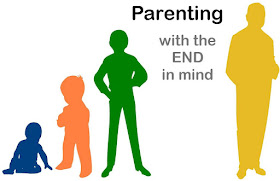A big part of strengthening social-emotional skills in children involves feelings. As humans we are programmed as social creatures with a vast array of emotions- positive and negative which play into our survival. Success in life and relationships, especially because of this social nature- relies on our abilities to distinguish and cope with our different emotional states. Unfortunately, there are many adults who have a difficult time naming how they are feeling and coping with different emotional states. Perhaps over the course of their life they weren't shown these truths:
Emotions are different from actions. To feel is human- how you express your feelings is most invaluable to the outcome.
While some emotions feel better than others, the feeling itself is neither "good" nor "bad".
Feelings are flux. Humans can experience the full gamut of emotions over the course of a day. What is certain is that feelings change.
Acknowledge feelings
- Active listening - Listen to what your child has to say without interruption, except an "uh-huh" or "hmm" to show you are listening. With active listening you will get more information initially than if you interrupt, ask questions or seek a solutions without all of the information.
- Reflective listening- With this technique you are trying to very closely paraphrase what your child is saying without copying or mimicking. You don't take the "floor" talking. Just keep tossing the opportunity to speak back to them. Sometimes hearing their own thoughts back helps them reflect as well as to feel important, respected and accepted.
- Name the feeling for them. Give children the social emotional vocabulary they need by naming the feeling after you have listened and observed. There are a wide range of positive and negative emotions- help by giving them each a name.
- Name your feelings and own them. Yes you! Share with your child how you are feeling and what you are going to do about it. This gives them a model of how to express emotions in an healthy manner. You might say, "I'm feeling frustrated I can't fix this. I am going to take a break and come back to it later when I feel calm and relaxed."


Acknowledging children's feelings means actively recognizing and validating their emotions. This supportive approach helps foster trust, emotional development, and open communication. Validating feelings doesn't necessarily mean agreeing with them, but rather creating a safe space for children to share their emotions without judgment. It is a good way to understand what is in their mind and how they interpret different situations. Listening to their problems and guiding them in the best way. It is very helpful in the good personality development of the child.
ReplyDelete